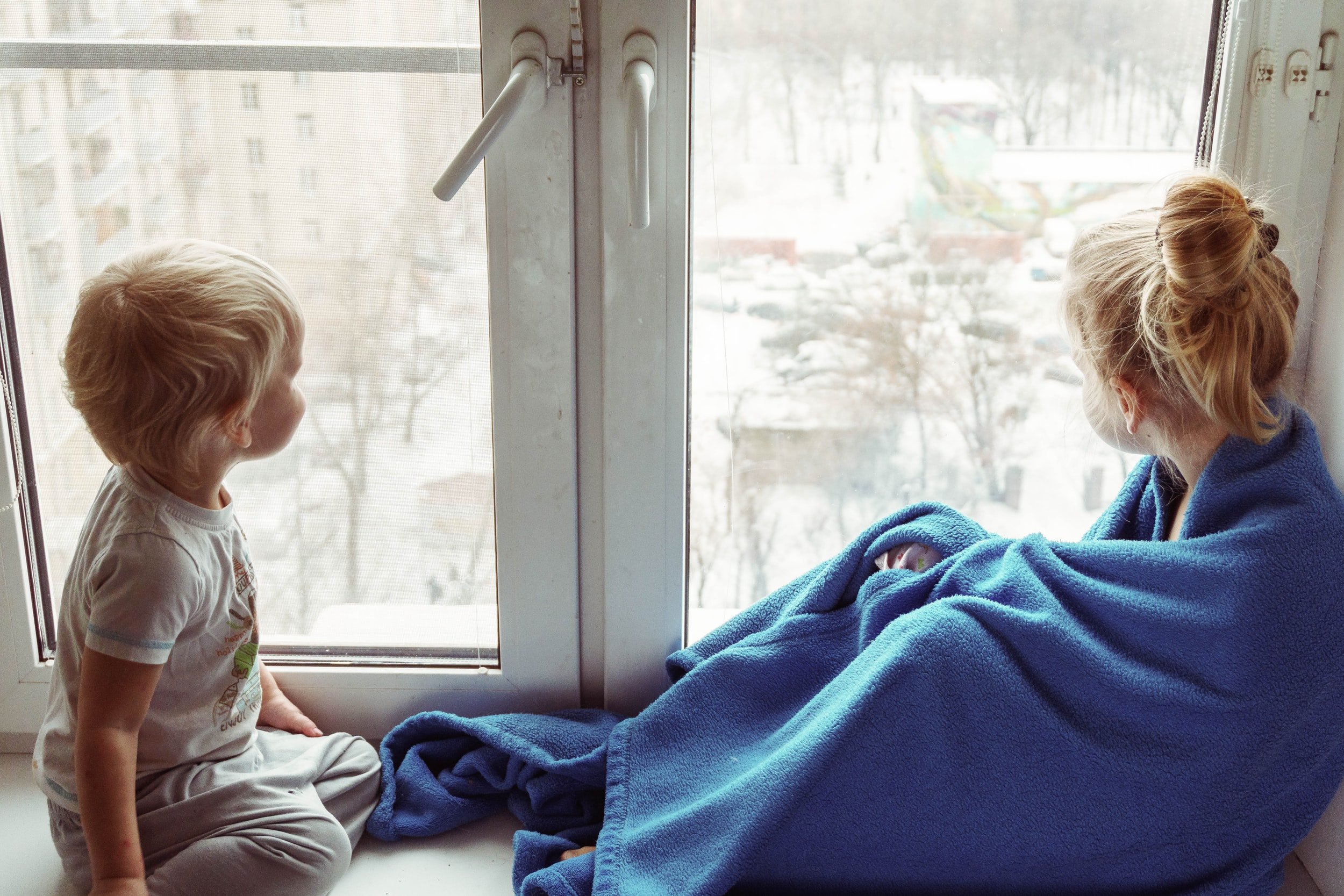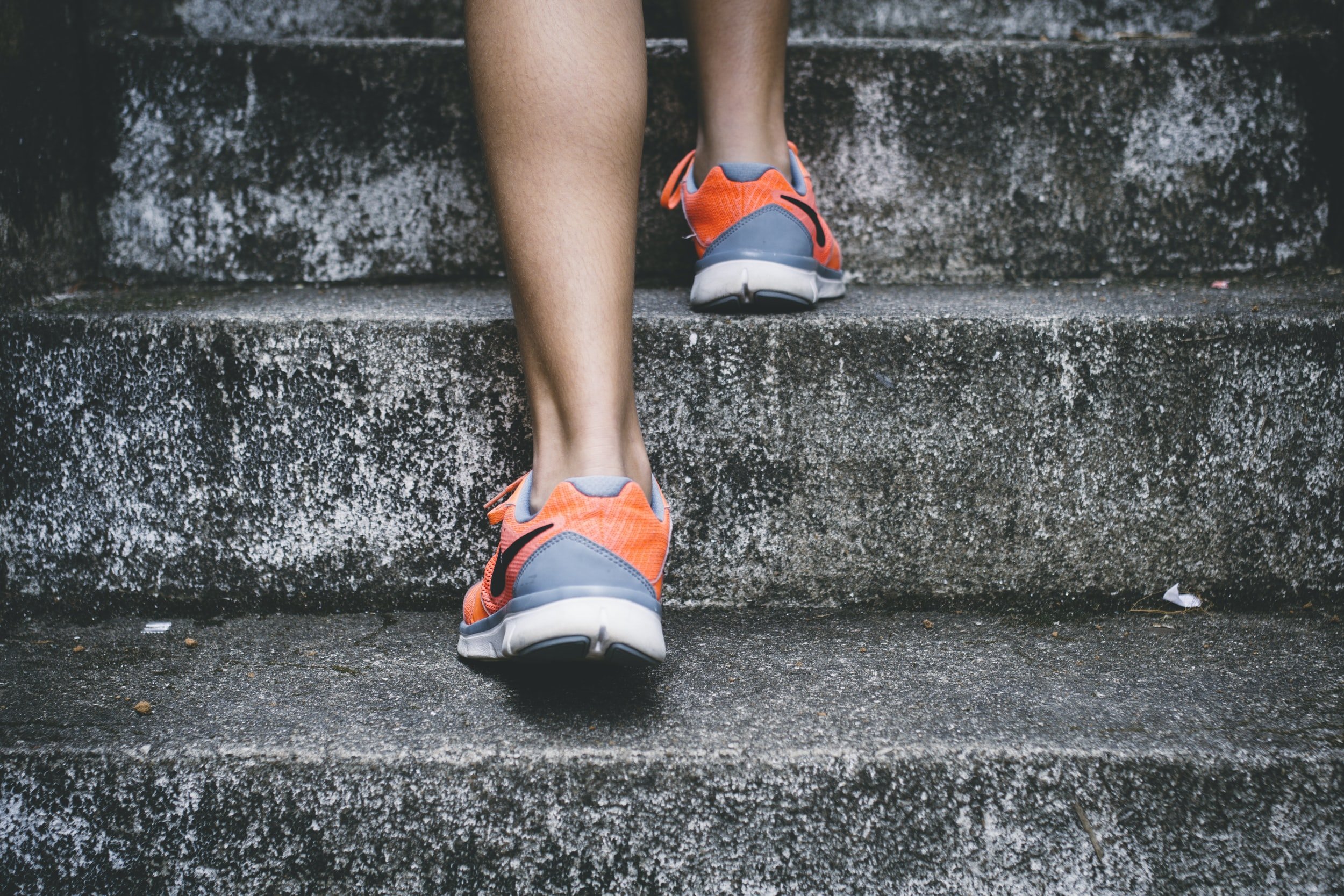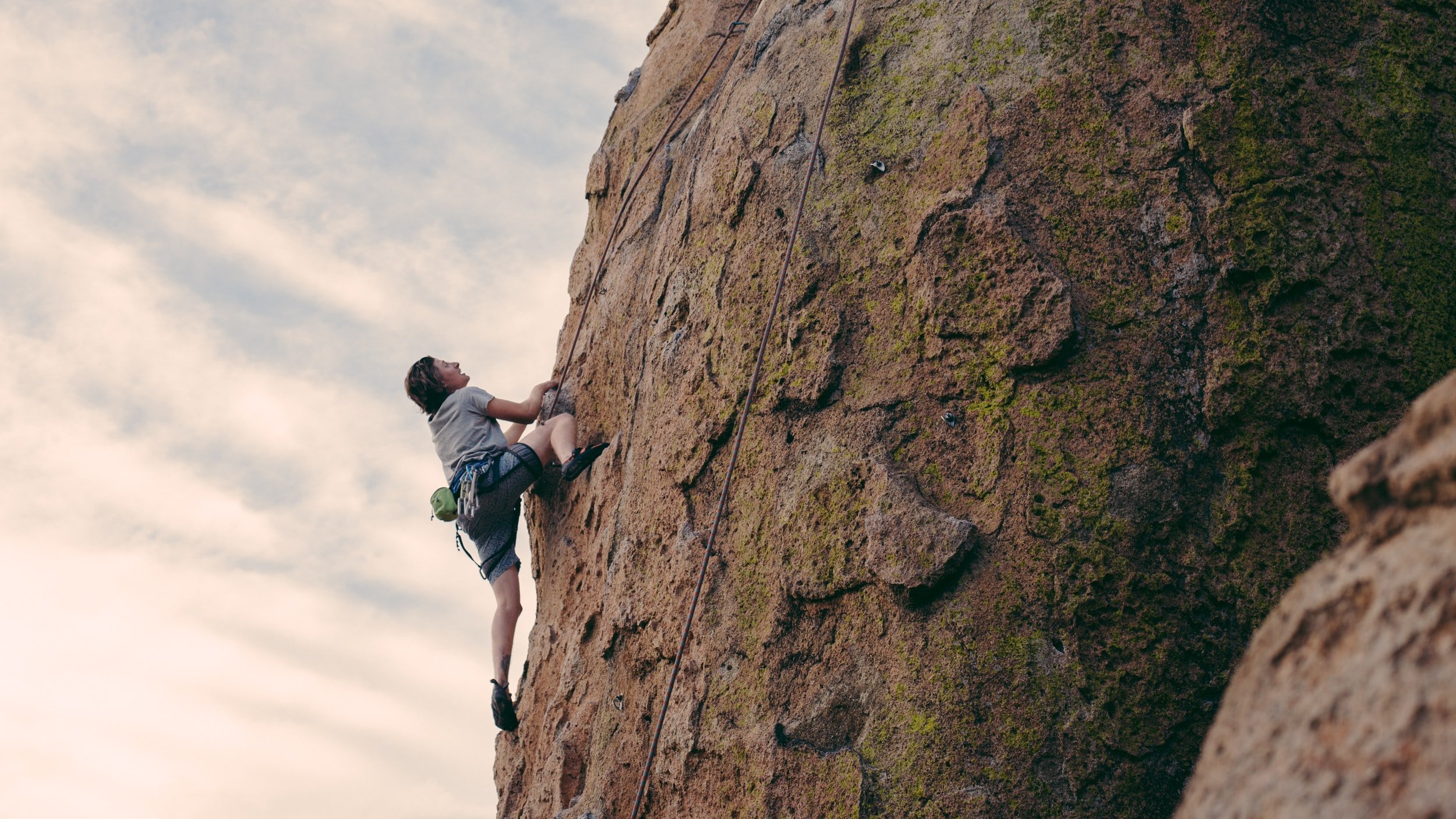
Breathing in the Time of a Pandemic
I’ve been thinking a lot about the novel coronavirus and its illness, COVID-19, and the fact that it generally does not seem to be such a severe illness for children. That fact is unusual. We generally worry about children becoming more ill with a new virus because they have not encountered it before. The seemingly continuous “six-month-cold” that virtually every child gets when she begins school or daycare is really the repeated process of working through one infection after another. There is a whole repertoire of respiratory viruses they have never met before. With each illness process immunity builds, and in time, the inflammatory reaction becomes brisker and the child more resilient. As adults, we are surely exposed to those same viruses and bacteria all the time, but have gained protection, gained “experience” around working with them. We therefore do not have the same repeated symptoms. But meeting the coronavirus seems to be different, almost opposite. No one has existing protection from this virus–that is why it is labelled as “novel”—and yet, young age seems to be of physiologic benefit. There is something about the way younger children get sick that we should pay attention to.

Support for Working through Flu (treatments which should help with coronavirus, too)
There are many small things we can do to help support each other through a flu. We can collectively work to understand “When I am sick, what is my body trying to accomplish, what does it need to do to get better?” and then we work to support those tasks. Fever is created by the immune system to physiologically aid the process of dissolving and clearing out what has become too isolated, too stuck, too cooled in our own body. Inflammatory reactions—also part of the immune system’s activity—work to recognize and remove those things that do not belong in us, which is why we get inflammations during infections with viruses and bacteria (even if we get a splinter in our finger). It is possible to guide and support the body to accomplish its tasks. The suggestions listed below are helpful for illnesses or influenza-type illnesses with strong fever.

Fever, Fear, and Riding a Bicycle: Working with Fever in a Different Way
This article was originally published in Lilipoh Magazine, Issue #97, Fall 2019
We lose part of our sense of control when we get sick, and no one likes that feeling. Loss of control brings fear. Illness is always a little scary because there is implicit risk of loss and incapacity and so we (appropriately) fear lasting injury. Another part of the fear we experience with illness comes not so much from injury, but from simply not quite knowing what is going to happen. Usually illness is mild, but what if it becomes life-threatening, and how are we supposed to know which illness is mild and which is dangerous? Getting professional medical advice aids in that determination, but even the medical encounter itself can bring its own set of worries—we must trust in the advice of medical providers even when we may not fully understand their decision-making process, or worse yet, not even be invited to participate in it. There are reasons to be fearful around illness on multiple levels.

Skin: What a Marvelous Sense Organ
You can read in many different places that our skin is the largest organ of our body. Some parts of our skin we know quite well, such as the skin of our face. We identify with that skin a lot. Other parts of our skin we may hardly notice, like the skin on our elbows, lower back, or maybe the tops of our feet. Our skin has social roles; it defines certain aspects of our social identity. We usually want it to look good and so as a society we spend a lot of time and money on things that smooth and nourish the skin with things like facials, chemical peels, sliced cucumbers and botox injections. Our skin simultaneously leaves us open to superficial judgements and prejudices, related to the color and pigment of the skin as well as the number of wrinkles it holds. Our skin protects us from the outside world with its barrier function. And yet it allows us to feel all barriers melt away, like the comfort of skin to skin contact.

Building Strength for the Future, from present adversity
Health and illness follows certain foundational laws of cause and effect. Falling from some height (like a tree) risks breaking a bone; smoking increases rates of cancer. Those are fairly straight forward links that are easy to understand. We could say, the horse is clearly pulling the cart.
But there are other situations where two results seem to come parallel to each other, like the “horse” is walking just in front of, or just behind the “cart.” But there are other situations where two results seem to come parallel to each other, like the “horse” is walking just in front of, or just behind the “cart.” For example, it has been demonstrated that having heart disease puts you at higher risk of depression, and that having depression puts you at higher risk of heart disease. Also, that depression puts you at higher risk of developing diabetes, and diabetes puts you at higher risk of depression. Hmmm—which is now the proverbial horse and which is now the cart?

The Therapeutic Value of “Maintenance” as a Life Process
We all need to devote energy to “maintenance.” No, this does not refer to some kind of human 30,000-mile check, like what you might do for your car (although healthcare would be much simpler if it only required a new water pump or brake pads at certain intervals). No, we are referring to a different kind of maintenance. What is being recommended is more along the lines of taking the time to really work through what has been taken in, so that it can fully become one’s own.

The Waterfall of Stress and High Blood Pressure
The holidays are behind us and now it is back to work, back to regular life. And for a lot of people that means diving back into stress (of course the holidays are not necessarily free from busy schedules or lots of unusual demands, either!). Stress is, however, a natural part of life, and there are aspects of our stress response that are very healthy, even life-saving in an emergency. At the same time continued chronic stress can make us really sick. There is a kind of “waterfall” effect that relates acute stress and physical illness. Here is one perspective that has proven to be helpful in talking to many different people about stress.

External Treatments using Kitchen Ingredients
Here are three simple ways to try to keep an illness process moving! And they only involve ingredients that you probably have in your kitchen cabinets or pantry. Sometimes our body just needs a little extra help so that a process doesn’t get stuck.
Chamomile steam for a badly congested nose and sinuses, or for an ear that won’t “pop” after air travel:
Boil several cups of water, and then pour them into a broad bowl. Add several teaspoons of chamomile tea (loose tea works a little better, or break open the tea bags if all you have is packaged tea). Stir in well and then with a towel or sheet make a little tent over your head and breathe in the chamomile steam. It can get hot and humid, so be sure to take breathes of cool air so that you don’t become light-headed and fall over! You can often even find chamomile teabags in a hotel, which is handy if your ear won’t pop after you have traveled far away from home.

Don’t Wash your Dishes so Well
What can you do when something bothers your digestion? This is an important question, as there are sure a lot of people with food allergies and sensitivities right now. One logical, initial step is to work to identify what it is that is bothering you (food diaries and allergy elimination diets work well for this). Then, when you have confirmed that something is a problem you should make sure that we are not eating it in excess. Sometimes it is even necessary to eliminate it from your diet completely. This gets to be a little bit of a complicated issue because, more and more, as we eliminate certain foods from the diet (like gluten) other foods tend to take a larger part of what we take in (like corn). Blood testing for antibodies, skin testing for reactions, and muscle testing are all important tools too. But then what do you do with the information? When we take something out of our diet, does that mean we can never eat it again?

Is it ever good to get sick?
This is a very challenging question, because even daring to ask the question can seem immoral, crass, or uncaring, especially when it arises out of medical work. But at some point it becomes essential to ask this question when we strive to understand illness in the context of broader patterns of human growth and development.
The usual, reflexive answer to asking “is it ever good to get sick?” is “No.” We perceive illness as painful, dysfunctional, and representing a failure, a breaking down of the machine of the body. Sometimes this failure comes through an invader (like a viral or bacterial infection), sometimes it comes from mistreatment (poor diet, alcohol, drugs), overuse of our body, or overexposure to toxic agents….

Artificial Sweeteners and What They Do to Our Humanity: Living an Authentic Life, part 1
Are you living a life of deprivation? Might seem like a strange question, as most people today are living in a world of such tremendous material abundance that it has no real historical precedent. People have never lived such complicated lives with so much stuff. There are, of course, scary times and hard situations when people do not have enough to eat or do not have a safe place to live, and unfortunately there are many places in the world right now where people are experiencing just this kind of desperation and loss. If you think about their lives very much, it is overwhelming. And sadly (but perhaps not so shockingly), it is very possible for most of us to go about daily life without giving it too much thought or too much worry. It becomes something we are aware of as a factual aspect of the news—one additional piece of information. It all becomes kind of abstract. How does that happen, that we can be connected to so much of the world and disconnected from it at the same time? What has been lost? Doesn't our loss of that capacity for real connection speak to another kind of inner, moral deprivation?

Does our body influence how we think? Getting unstuck, Part 3
There is another aspect to getting unstuck, which relates directly to the connection between our physical/physiologic life and our emotional/spiritual life. It is actually a connection that goes both ways, meaning that our emotional and spiritual life impact how our body feels and how our body works, and vice versa. We all experience this. When we are stressed it affects our sleep, our energy, even our digestion, whereas when we are relaxed and contented many of the little aches and pains fall away. Going the other way (the functioning of our body up to emotional and spiritual well-being), imbalances in the body's physiology (like electrolyte levels, blood sugar and organ function) influence the way we feel and even lend an “imprint” into our thought life. Bodily function lends a continuous coloring to our experiences and perceptions, though this is usually fleeting and remains mostly unconscious. A bigger injury or imbalance—like falling and breaking your arm exaggerates that influence. The acute pain of that injury clearly distracts and disrupts our emotional and cognitive functioning. But this pathway is there all the time and it functions in both directions.

Inflammation as Transformation: How to Get Unstuck? Part 2
One of the truest definitions of health that continues to prove itself over and over again is that when we get sick, our immune system can work thoroughly and efficiently so that the illness comes to a full resolution. In other words, being healthy does not mean that we never get sick (which would assume that at baseline we have some kind of perfection of physiology, and illness is always a deviation from it). That makes for a clean model, but is a very static view. We are more dynamic beings than that. At important times an illness process can actually open the door for us to transform and rebalance. Small children are particularly good at this. When they get stressed or worn down, they quickly show the world that they don't feel well (adults are not quite so honest, and we can hold out a lot longer with supports like caffeine, deadlines, duty, and yes, the fear of finally letting down…). But sick children do what their bodies need: they slow down, they lose their appetite, get a fever, whine and cling, and discharge what they don't need (with a drippy nose, loose stools, a red rash, etc). That process needs a few days, but usually children swiftly turn the corner and build back to a good appetite and full activity–often better balanced than they were before. So an essential part of health is that our body has the flexibility to loosen and shift and change to a new state as needed.

Getting Unstuck, Part 1: How a Homeopathic Remedy Can Help
Been stuck recently? Seems to be going around. It’s not necessarily bad as long as it doesn’t become a way of life, though it usually does last longer than we feel comfortable with. But it has its place. Take breathing as an example. There is that place in your breathing, where you have taken in a full breath, but not yet started to release the air. Do you know that place? And it feels like nothing is happening, but there is something happening—a change in activity is coming (from in-breathing to out-breathing). And while the natural world around us these days is bursting into new activity, the human process for change seems to lag behind this time of year. Why? Well, when the winter comes and brings cold temperatures and long nights, we all naturally breathe in. It feels really good to breathe in at that time. Fall, the winter holidays, and the changing of the year bring an inwardness that feels really good. It's nice to be cozy inside, light candles in the darkness, and devote time to our family life, our community life, and our inner life. It is in fact true that the deepest winter nights are a potent time to come into a purer relationship to our inner intentions and our spirituality. We can connect better to our higher self and find inspiration for the coming year during that time….

Can you have a tumor in your feeling life?
There is a very unusual description of a tumor in anthroposophic medicine. It comes from some comments made by Rudolf Steiner, who helped to found anthroposophic medicine with a group of physicians about 100 years ago. It says that a tumor is a “sense organ”—like an eye or an ear—in the “wrong place.” That sounds very bizarre, until you start to spend some time thinking about the process, the activity of a sense organ, which is create a space where the outside world can penetrate into us, undisturbed. Our eye, or our ear, should accurately convey our surroundings without altering them. That is not the only way the outside world comes in: we breathe air, but warm and humidify it, and what we breathe in is different than what we breathe out; we take in food, but it is (necessarily) radically transformed through our digestion. Our sense impressions, however, really should come in without disruption or distortion. So our eyes, and our ears and our smell, can truly be thought of as little “harbors” where the outside world comes into us.

Gallstones and Your Mood
When I was doing my medical training, there was a pretty simple rule about the gallbladder: if you find that there are gallstones, and someone is having symptoms (pain on the right side, up under the ribs, especially after eating fatty foods) then the gallbladder needs be taken out! If there are gallstones, but no symptoms, in most cases leave it alone (diabetes was an exception). It was, and is, a very mechanical view of the liver and gallbladder, sort of like swapping out parts on a car engine. If it is causing problems take it out, if it is not, leave it be. And it is true that a primary activity of the gallbladder is to function as a storage sack for the gall and wait until the right kinds of foods are eaten, then send a bunch of gall down into the small intestine. But the gallbladder is more important than that. For the active excretion of the bile through the gallbladder is an essential activity of the liver, and for digestion in general.

Why Warmth is so Important
It is really important to nurture and protect your warmth. Warmth deserves more attention than it usually gets. Warmth holds a very special place in the life of both the developing child and the adult, because it works throughout the entire spectrum of human experience. There is physical warmth, emotional warmth—the warmth of love, of generosity, of true morality—and all of these “warmths” pour over and merge with each other. Perhaps most importantly, warmth is the essential ingredient in transformative work. Without warmth we cannot change, and our life is full of processes of growth and adaptation. Warmth helps us be healthy human beings on many different levels.

The Menstrual Cycle as a Breathing Process
Sometimes the most beautiful and important part of our physiology is flexibility. Can we shift and change ourselves? We do, of course, carry this out all the time—for when we take in a breath we open ourselves to the world around us (Rudolf Steiner actually pointed out that we are much more intimately related to our environment through respiration than through digestion or touch). Then when we breathe out, we cut ourselves off from outside world, and release what we do not need any more (carbon dioxide, nitrogen, etc.) This is a very regular, and familiar cycle, one which we generally carry out 16–24 times a minute. But there are other ways that we breathe too. The menstrual cycle can be understood as one such kind of respiration, one that brings aspects not just of inside and outside, but also life and death, generosity and loss.

Where does Anxiety come from?
Feeling anxious? Then you probably need to reconnect your thinking with your feet. Why is that true? Well, anxiety, in all its different forms usually means that we are thinking, watching, waiting, and can't quite let go of that activity. Sometimes exaggerated sensing activity is healthy and appropriate—for example, if a dog jumped out and bit your leg, then you should be extra watchful and guarded if you have to walk by that dog's house again. But if you became so worried that you never went for a walk, or find that when you do go for a walk you are still worrying about the dog long after you have arrived home, closed the door, even gotten into bed in your pajamas, then that watchfulness is no longer healthy. In a way, our nervous system gets stuck in the “on” position and doesn't switch off (another term for this could be hyper-vigilance).

Healing from the Inside, Out
Why do you go and see the doctor? Usually it is to get something—a prescription, a lab test, a diagnosis, an operation. Occasionally it is just for reassurance, but usually it is because we feel that we need something. And that is true a lot of the time. We can't do it all by ourselves. But receiving external treatments does not solve every situation, and it can even make us assume that our bodies, or our diet, or our genes are inherently broken and lacking something. That takes away a lot of our power to heal. In fact, today's pharmaceutical drug development looks to find conditions that require a medication that you will need to take for the rest of your life. That's good business, but it is not good healing. The truth is that there are many conditions that require us to make a shift and heal from the inside, out.